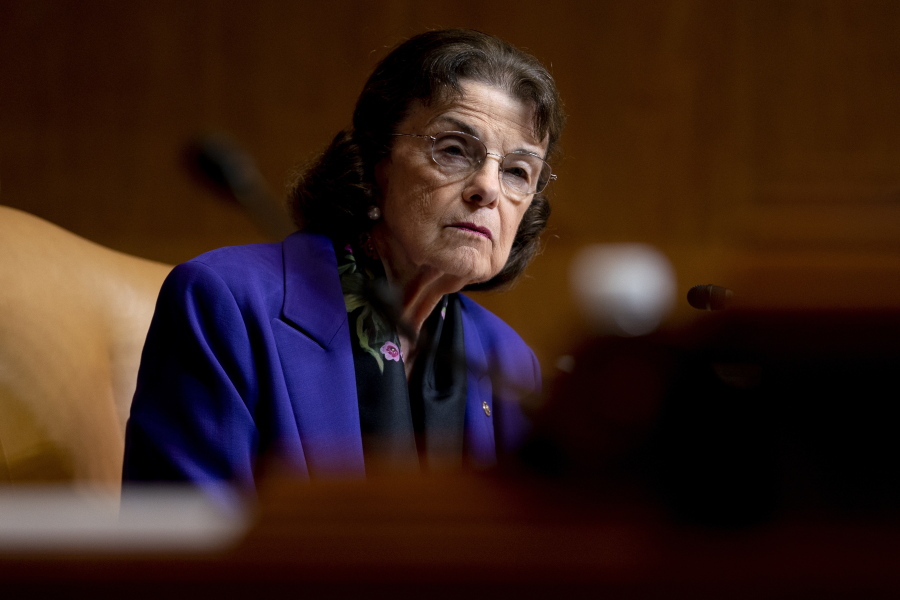RENO, Nev. — Sen. Dianne Feinstein is calling on federal land managers to conduct an investigation to determine how many of the wild horses captured on public lands in the U.S. West end up at slaughterhouses.
The California Democrat also wants the federal Bureau of Land Management to reevaluate the $1,000 cash payments it offers those who adopt the mustangs.
Horse advocates say the money provides an unintended incentive to obtain the mustangs then illegally sell them for slaughter.
Feinstein urged Interior Secretary Deb Haaland in a letter Monday to investigate how many adopters of wild horses have violated regulations protecting the animals and how many have been sold or transported for slaughter historically.
The department’s Bureau of Land Management announced last month it is tightening protections to guard against illegal resale of the animals, including stepping up compliance visits following the adoptions and increasing warnings to sale barns that violations could bring federal charges.
Horse protection advocates say they have documented the resale of horses for slaughter for nearly a decade. They argue the practice will continue until the agency ends the $1,000 payments it has offered in recent years to try to jump-start lagging demand at overstocked holding pens.
The Biden administration is planning to sharply increase wild horse roundups this year because of severe drought across the West.
The bureau estimates there are about 86,000 horses and burros on the range in 10 Western states, about half of those in Nevada. It says that’s three times as many as the public lands can sustain ecologically.
Horse advocates dispute that assessment. They say federal land managers are appeasing ranchers who don’t want the mustangs competing with their cattle and sheep that graze on federally subsidized rangeland.
Marty Irby, executive director of the advocacy group Animal Wellness Action, praised Feinstein’s effort to “clean up” the bureau’s “poorly managed” program that he says has led to the slaughter of countless wild horses and burros.
Feinstein, a senior member of the Senate Appropriations Committee and chairwoman of its energy and water subcommittee, said in the letter to Haaland, who oversees the bureau, that she was pleased to hear the agency has committed to reforming the program, including improving applicant screening and referring relevant cases to U.S. attorneys for possible prosecution.
“However, I believe more must be done in light of the disturbing allegations that some adopters have mistreated or illegally sold wild horses and burros, and respectfully urge BLM to conduct a full investigation of the matter and prevent such adopters from adopting again,” Feinstein wrote.
She urged BLM to reevaluate the cash incentives and instead consider payments in the form of federal subsidies for training of adopted horses to “increase the likelihood that they stay in loving homes.”
A half-dozen questions Feinstein said she wants the bureau to answer within the next 60 days include whether it tracks how many wild horses and burros are sold for slaughter, and if so, what those numbers look like. She also wants to know how many cases the bureau historically has referred to law enforcement, and the outcome of each of those cases.



